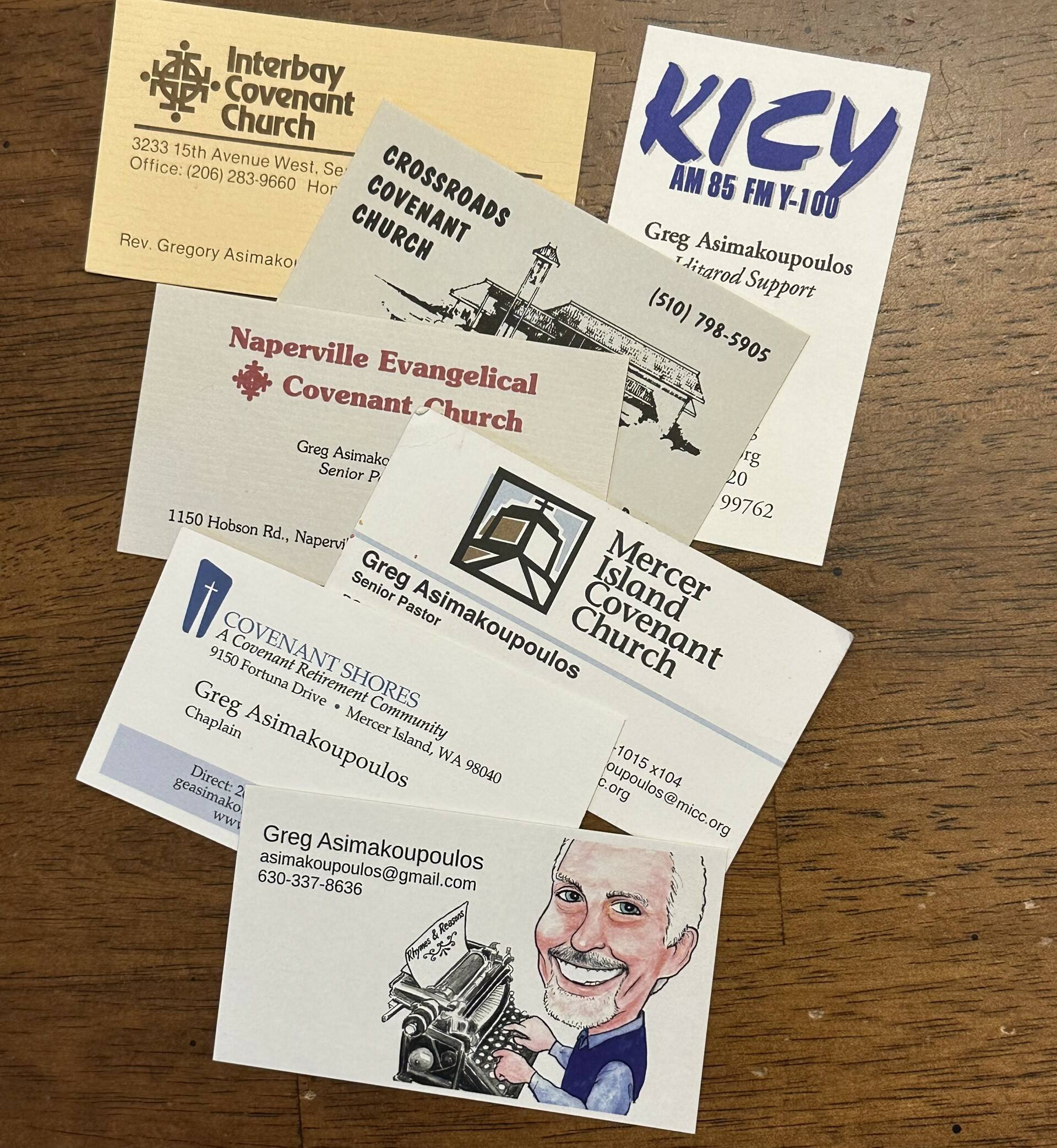Having retired a year ago, I approach this Labor Day with mixed emotions. I’m very grateful for a day to spend at Lake Chelan with the family enjoying annual traditions that define this unofficial end-of-summer holiday. All the same, a day that celebrates the gift of employment now finds at sixes-and-sevens.
I’ve been a man-of-the-cloth for 45 years. As such I had a flock to lead, a parish in which to preach, babies to baptize and couples to counsel. Clothed in the vestments of my calling, I knew what to do. With daily commitments to which to give myself, I felt dressed-for-success.
But now, without a paying job, I feel naked. There are no sermons to prepare, no shut-ins to visit, no grief support groups to facilitate. My calendar is uncharacteristically clear. The unblemished boxes on my Daytimer is a bit unsettling. As a result, I am laboring to make peace with my present status. Looking into the morning mirror I realize how much I have allowed my identity to be tied the title on my business card.
Although I have been quick to advise others to not equate their worth to their work, I find myself struggling to practice what I have preached. Now that I’m retired, I realize how easy it is to worship what we do. In the process, we fail to see our careers as simply a means to an end and blindly view them as the ultimate aim of our lives.
Gordon Dahl, a professor in the economist department at the University of California at San Diego, has indicated that we Americans tend to worship our work, work at our play and play at our worship. Having been guilty of giving my job unjustified adoration, I concur with his assessment. From what I’ve observed, we tend to be more fixated on what we do than focus on who we are. As you have no doubt heard before, we are humans doing instead of humans being.
A first century rabbi writing to a congregation in the Middle East offers a corrective to our tendency to elevate our employment. Paul of Tarsus wrote, “For we are God’s workmanship, created to do good works, which God prepared in advance as our way of life.” Notice the reference to workmanship and work.
As I reflect on that ancient rabbi’s observation, it occurs to me that the labor worth celebrating this Labor Day is not our work in the office but God’s work in our lives. Indeed, our worth as individuals has little to do with the job title on a name plate or the dollar amount on a W-2 form.
Our worth is based in the fact that we are created in the image of our Creator. Imago Dei is the value with which each of us is tagged as we find ourselves at the starting line in the human race. In other words, we are the priceless product of God’s efforts apart from our efforts.
But in addition to God’s working within us, there is work for us to do tied to our God-likeness that gives meaning to our lives. The rabbi’s words also call attention to the fact that the work that most matters is not a merely a 9-to-5 assignment for which we get paid. Rather, it involves investing in people through acts of kindness.
This Labor Day why not join me in identifying work to which we can give ourselves apart from our employment status? Such efforts might include: visiting someone on hospice, mowing the lawn of a widow, volunteering as a greeter at church, giving your air miles to a young family planning a vacation, helping cook a meal in a homeless shelter, writing a letter of gratitude to a teacher you had in high school and giving a server in a favorite café an over-the-top tip.
Let’s make this Labor Day not about our work but about other’s worth. In the process we just might rediscover what our true work in this world is all about (whether we collect a paycheck or Social Security).
Guest columnist Greg Asimakoupoulos is a former chaplain at Covenant Living at the Shores in Mercer Island.



